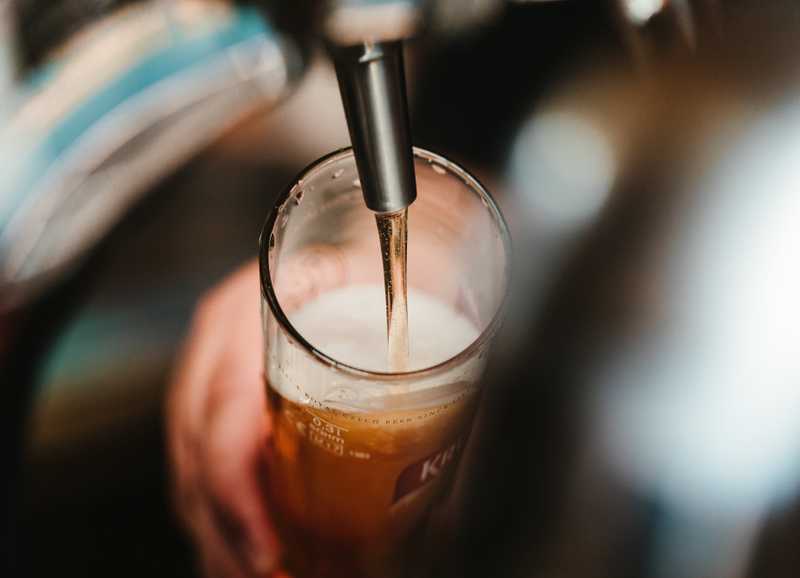Canadian adults are anxiously awaiting the rollout of the country’s legal cannabis market. As just the second nation—after Uruguay—to fully legalize marijuana, the world is also watching its example.
But not everyone in Canada is excited. As the country gears up for adult-use marijuana sales to start on Oct. 17, the alcohol industry is lobbying hard to keep its profits intact; it’s doing so by asking Parliament to raise the proposed tax for legal cannabis.
In a hearing for Bill C-74, which includes the proposed tax rate for recreational marijuana, the president of Beer Canada, an alcohol trade group representing over 50 beer makers, expressed to the committee that a failure to increase marijuana tax rates would result in drastic profit losses for alcohol companies.
Not to mention the alcohol industry is facing even steeper taxes, with a proposed escalator tax, which would increase the federal tax on liquor by 2%—and every year after to keep up with inflation.
His argument is that lower taxes on cannabis will push more people to buy it over alcohol.
And he may have a point. There’s plenty of evidence, which shows that cannabis is already disrupting the alcohol industry in the United States. And since Canada’s alcohol taxes are higher than that of the U.S., it makes sense that a low cannabis tax rate may affect Canadian alcohol companies even more drastically.
The alcohol industry is also urging Parliament to pass equally restrictive advertising and marketing regulations for cannabis so it’s on par with the ones the alcohol industry must abide by.
The alcohol lobby’s urging begs the question: Why exactly is the alcohol industry so threatened by cannabis?
RELATED: THE WORLD WATCHES AS CANNABIS LEGALIZATION NEARS IN CANADA
Why Is the Alcohol Industry Scared of Legal Marijuana?
For those researching marijuana legalization and its effects, it’s no secret that cannabis poses a threat to the alcohol industry. Cannabis is a nonhangover-inducing substance with medicinal applications, which alcohol doesn’t have.
Marijuana consumption has been proven to be drastically safer than alcohol intake. And people are already finding that cannabis works nicely as an alcohol replacement.
In one study, 40% of cannabis consumers said they had replaced alcohol with cannabis. And in states with medical marijuana laws, the alcohol industry saw a roughly 15% drop in sales.
It isn’t just researchers who’ve recognized this trend. In the U.S., large, publicly traded alcohol companies have noted that cannabis poses a risk to their business. The parent company of Jack Daniel’s noted in its fiscal year 2014 filing to the U.S. Securities and Exchange Commission that consumers may shift their preferences due to increased access to legal marijuana.
Considering these facts, it’s easy to understand why legal marijuana has Big Alcohol worried. And in its fear, the alcohol industry has adopted tactics for lobbying against increased access to legal cannabis, as Parliament’s seeing now.
In the United States, this means not only lobbying but spending money on squashing cannabis legalization, too. The Beer Distributors of Massachusetts and the Wine & Spirits Wholesalers of Massachusetts donated a combined $75,000 to Campaign for a Safe and Healthy Massachusetts, an anti-legal marijuana group.
In 2016, Arizona Wine and Spirits Wholesale Association gave $10,000 to a group rallying against the 2016 initiative that would’ve legalized cannabis in the state—an initiative that ultimately failed.
What Would Higher Excise Taxes Mean for Cannabis Consumers in Canada?
Since cannabis legalization is full steam ahead in Canada, the Canadian alcohol industry’s main tactic is urging Parliament to increase taxes on recreational marijuana. These efforts, if successful, would likely increase the Goods & Services Tax and Harmonized Sales Tax that cannabis consumers—not cannabis companies—are responsible for paying.
Right now, these tax rates vary depending on the province, but can be anywhere between 5–13%.
If cannabis producers and storefronts see heavy taxation, it’s likely they will have to pass some of that burden onto their customers in order to keep their business afloat. It’s not clear how that would affect the marijuana’s potential cannibalization of alcohol sales, but the alcohol industry seems to think it would work in their favor.
Photo credit: Bence Boros
